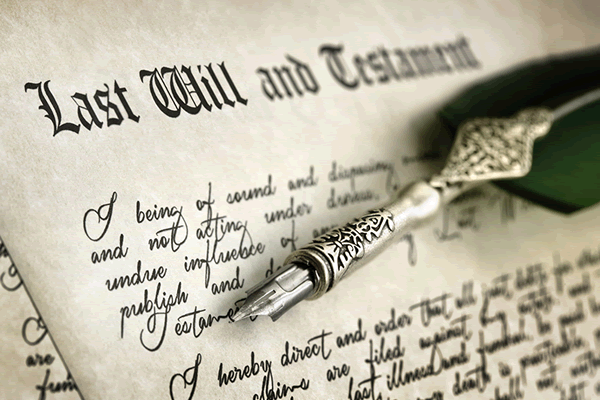For these celebrities, the effects of their lack of planning had far-reaching consequences.
by Heleigh Bostwick – updated September 24, 2020
What do Picasso, Jimi Hendrix, Abraham Lincoln, and “Sonny” Bono all have in common? You’re probably thinking, not much. But they do, in fact, have one big thing in common. They all died intestate—which means they died without having a will.
Surprisingly, even the rich and famous can fail to plan ahead when it comes to their estate.
Here’s a snippet of 10 famous people who died without wills and what happened to their estates.
1. Jimi Hendrix
Although Jimi Hendrix died in 1970, the battle over his estate raged on for more than 30 years for one simple reason: Hendrix left no will regarding the distribution of his estate. To complicate matters, the estates of musicians and other artists often continue to generate money long after their deaths.
2. Bob Marley
Like Jimi Hendrix, Bob Marley’s estate continues to generate significant revenue despite the fact that Marley died in 1981. Also, like Hendrix, Bob Marley died intestate even though he knew he had cancer and lingered for nearly eight months. His estate, worth a reported $30 million, had dozens of claimants.
3. Salvatore Phillip “Sonny” Bono
Granted, Sonny Bono “the politician” died an untimely death in a skiing accident in 1998, but why he died without a will is something we’ll never know. Instead of staying at home to grieve, his widow Mary Bono headed to the courthouse to be appointed the estate’s administrator. Ex-wife Cher showed up on the scene as a claimant in Bono’s estate and a “love child” surfaced soon after that, making the situation even more difficult.
4. Stieg Larsson
Swedish author Stieg Larsson who wrote The Girl with the Dragon Tattoo, among others, died in 2004. Like many others, Larsson died without a will and Swedish law dictated that Larsson’s estate was to be divided up between his father and his brother. His lifelong partner of 32 years, Eva Gabrielsson, received nothing, although the family did grant her ownership of the couple’s apartment.
5. Pablo Picasso
Pablo Picasso died in 1973 at the age of 91, leaving behind a fortune in assets that included artwork, five homes, cash, gold and bonds. Because Picasso died intestate and left no will, it took six years to settle his estate at a cost of $30 million. His assets were eventually divided up among six heirs.
6. DJ AM
DJ AM, whose real name was Adam Goldstein, died from a drug overdose in 2009. While his name might only be familiar to those of a certain age, he too made the mistake of not having a will. In Goldstein’s case however, since he had no heirs and was not married, disposition of his estate was fairly straightforward with his mother as the sole beneficiary.
7. Michael Jackson
Although a will was later discovered, immediately following Michael Jackson’s death in July 2009, his mother filed court papers claiming that Jackson died intestate. Like Hendrix and Marley, Jackson’s estate continues to generate money. In the year since his death, his estate generated over $242 million.
8. Steve McNair
NFL player Steve McNair had it all—fame, fortune, and a beautiful family. But when 36-year-old McNair was shot and killed by an alleged girlfriend, who is believed to have committed suicide after killing McNair, the truth came out—that he had, in fact, had a girlfriend, and he never bothered to create a will.
9. Howard Hughes
Howard Hughes was an eccentric billionaire who died in 1976 at the age of 70. When he died, his will was discovered at the Mormon Church’s headquarters in Salt Lake City. However, the will was proved to be a forgery in a Nevada court and his estate was divided among his 22 cousins.
10. Abraham Lincoln
Abraham Lincoln, the nation’s 16th president, has the distinction of being the first president to be assassinated (1865) as well as the first president to die without a will—despite being a lawyer himself. Famous or not, everyone should have a will. It’s simple to do, and it saves your family a lot of money and headaches. And, as illustrated by the stories above, you’re never too young—or too smart or too powerful—to have a will.

